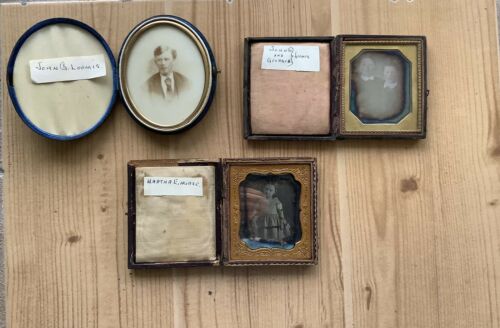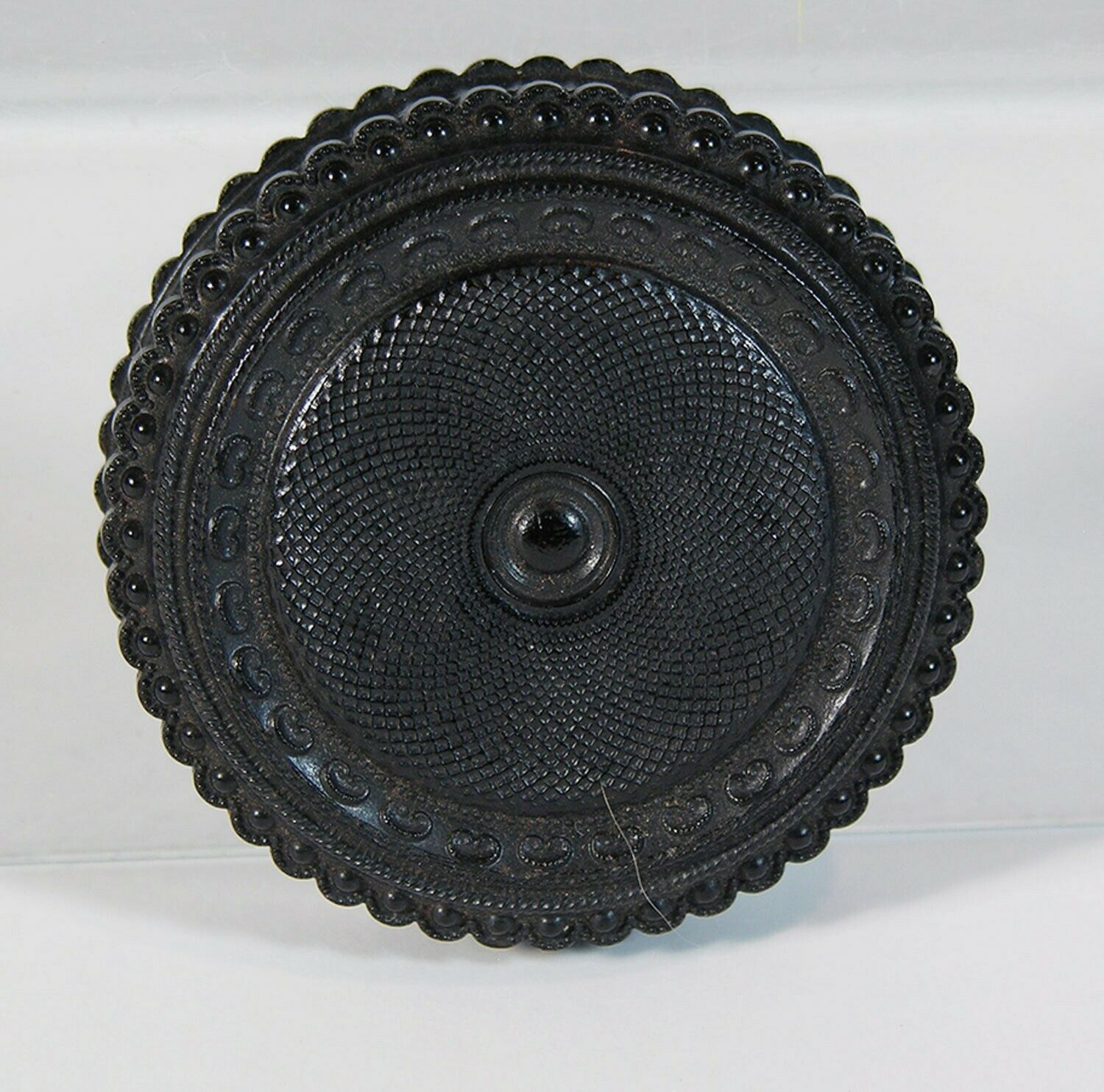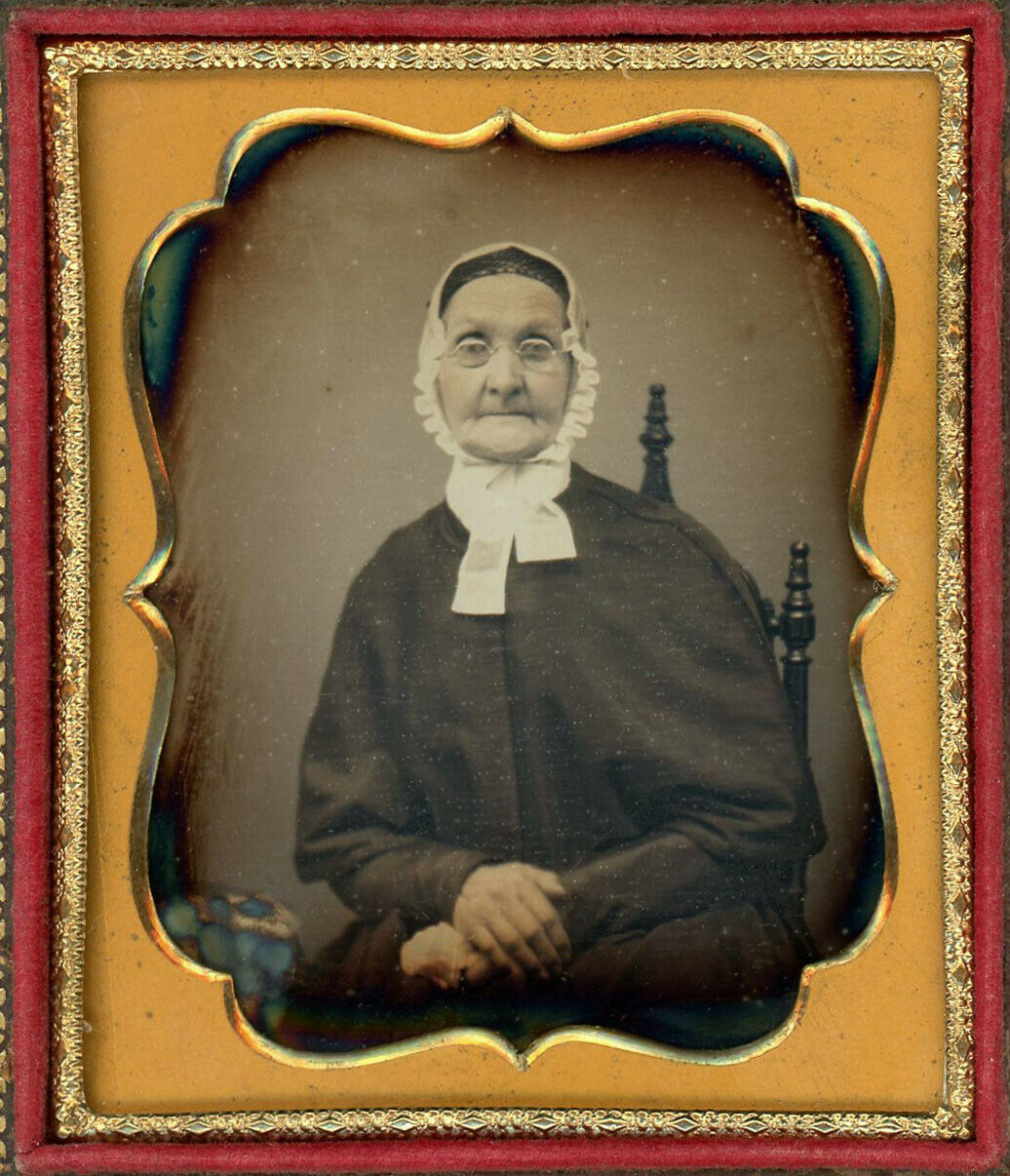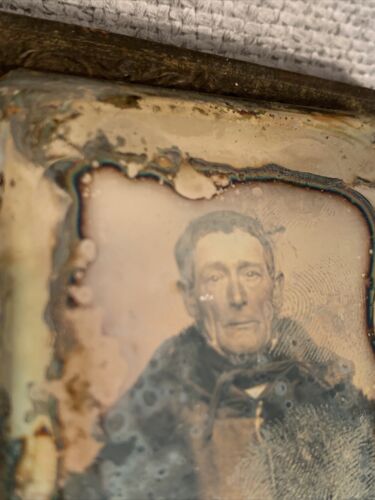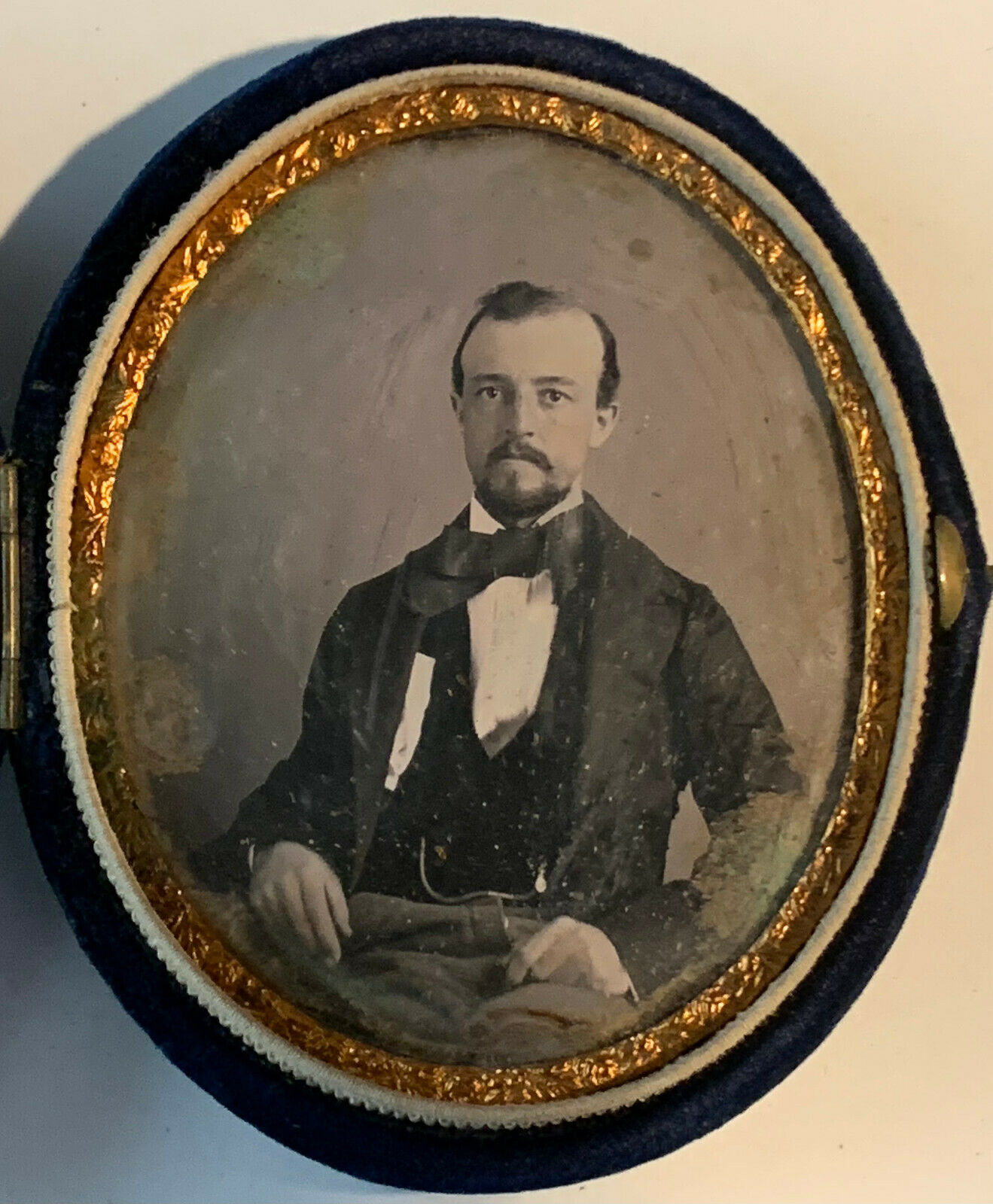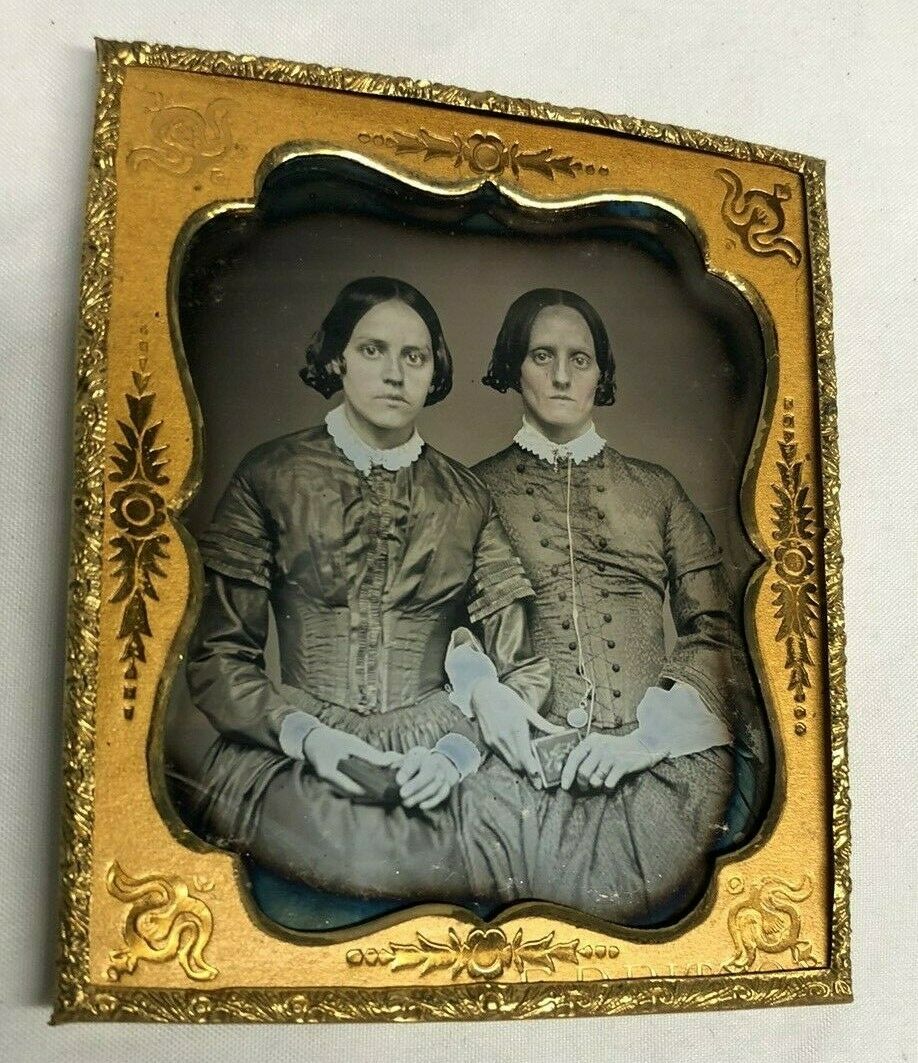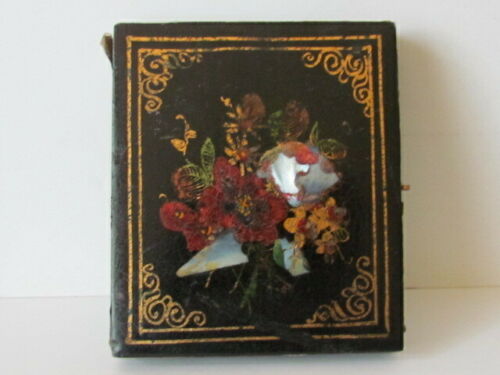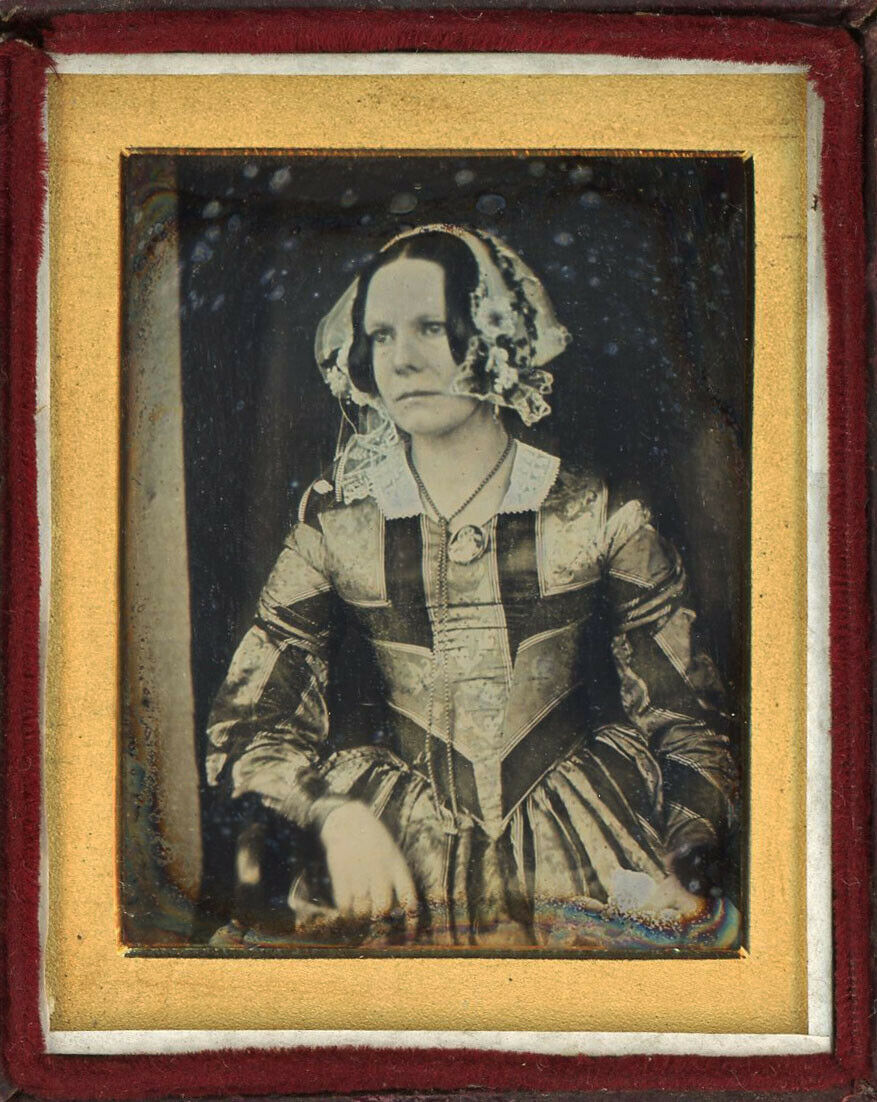-40%
BRAZIL RIO DE JANEIRO portrait of a lady Daguerreotype FRANCISCO NAPOLEÃO BAUTZ
$ 660
- Description
- Size Guide
Description
Antique daguerreotype photograph depicting a lady with a flower in it's hand by Francisco Napoleão Bautz.The portrait has a studio curtain on the background and the lady holds a full red blossoming flower in her hand (a rose? a double flower camelia?).
The atribution to Francisco Napoleão Bautz is fully justified with particular stylist qualities we recognize as particular to Bautz as well as formal qualities of the material presentation of the photo, specially the case being equal to another case produced at the workshop of Bautz in Rio de Janeiro.
The portrait has many similarities with one made by
Francisco Napoleão Bautz portraying two young men with an harbour at the background (a painted canvas of Bonfim's harbour), sold a few years ago
:
(https://www.worthpoint.com/worthopedia/brazil-19th-daguerreotype-francisco-169996498)
The curtain to the left, counterpointing the sitter to a domestic background and the same gentle posture of the sitter, and also this very balanced sense of a friendly and intimate "blasé" posture, particular to the portrait of this lady, the portrait of the two young men and the portrait of a gentleman in the Salvador da Bahia studio near a balcony and having the same canvas with the harbour of Bonfim as a backgroound,
from the Museum Ludwig:
(https://www.omnia.ie/?navigation_function=2&navigation_item=%2F2048433%2Fitem_L6IOS3YD5KKGY7EMZ5Q7PTEV2CN732SR&repid=1)
Also the photo of Biblioteca Nacional
Careful observation of the three examples (we've choosen fully identified and labeled examples to compare) catch a tendency for a movement of one arm of the sitter, and the other side's hand resting on the sitter's lap.
The other feature is the case. It is exactly the same case as in the portrait of Museum Ludwig. In fact, Bautz refers in is advert " a full variety of cases", as he also had different kinds of labeling his photographs.
The museum Ludwig photo presents a larger label with the inscription
"GALERIA DE RETRATOS PHOTOGRAPHICOS/ COLORIDOS. / De Francisco NapoleOo Bautz. / Ao 2.° andar / 11. Rua da Preguiça, ao pé da Ladeira. 11. / Todos os dias tirāo-se retratos, de qualquer tam-/ [?]nho, com a maior perfeiçāo, seja qual for o tempo Rico / sortimento de caixinhas, caixilhos, molduras etc. etc. / Tirāo-se retratos em casas particulares, pessoas fallecidas, vistas de paisagens, reproducōes de quadros, pinturas, desenhos. Indireita e poem em seu primeiro estado os retratos, que se vão apagando. Ensina O tirar / retratos e tem instrumentos para vender. - Bahia."
and the two men portrait presented only a label with "
Francisco Napoleão Bautz / Rua Direita do Palácio, perto do Teatro
", cut without printed framing or text.
The labels of the photos from Museum Ludwig,
Biblioteca Nacional do Brazil
and
Mr. Ubaldo Senna
collection, as well as the one sold by us, are very different (further reading at
https://blogs.ibahia.com/a/blogs/memoriasdabahia/2013/04/09/napoleao-dautz-um-daguerreotipista-alemao-na-bahia/
).
The present photograph must have been done in the 1840's, noticing the dress of the lady, yet in Rio de Janeiro, where Francisco Napoleão Bautz landed in 1839 and settled himself, first as a Court painter and opened in first studio. It is now known that in 1847, Bautz was already established in Bahia. It is so, likely that the photo was taken between 1840 and 1846/7.
A label identify the place of origin as Rio de Janeiro, in a printed paper, then cut and glued to the back of the plate. The paper has old foxing on the glue area.
Case dimensions: 13x11cm
Please note that Daguerreotypes are difficult to photograph, thus the quality and perspective of captures illustrating this item.





